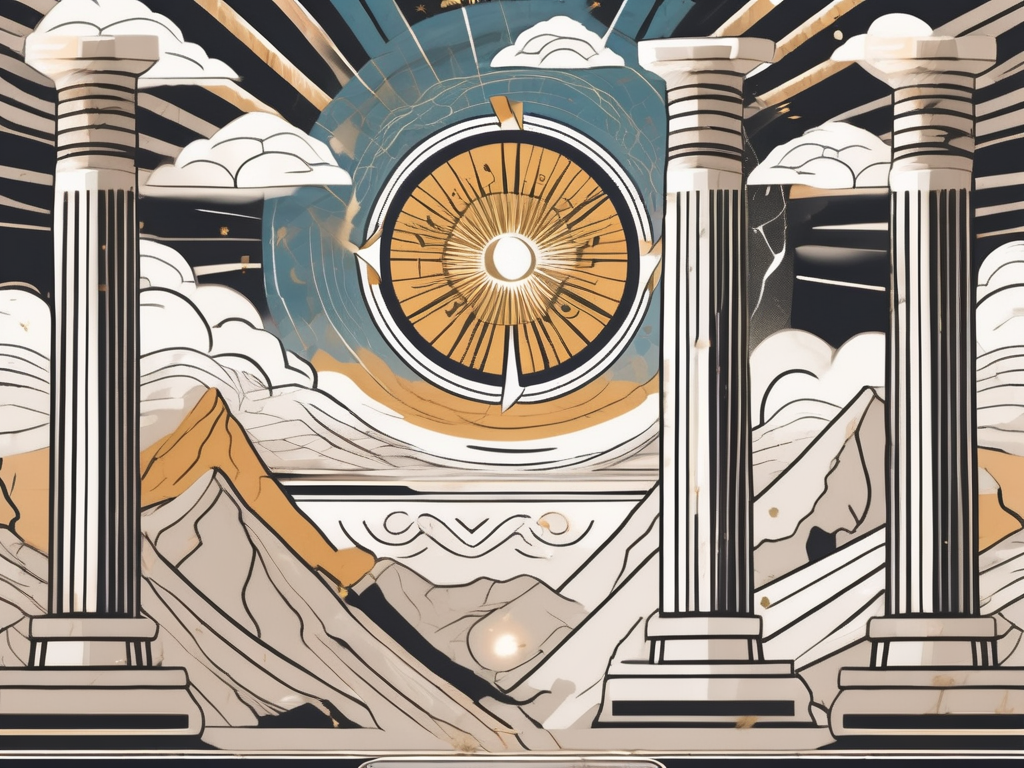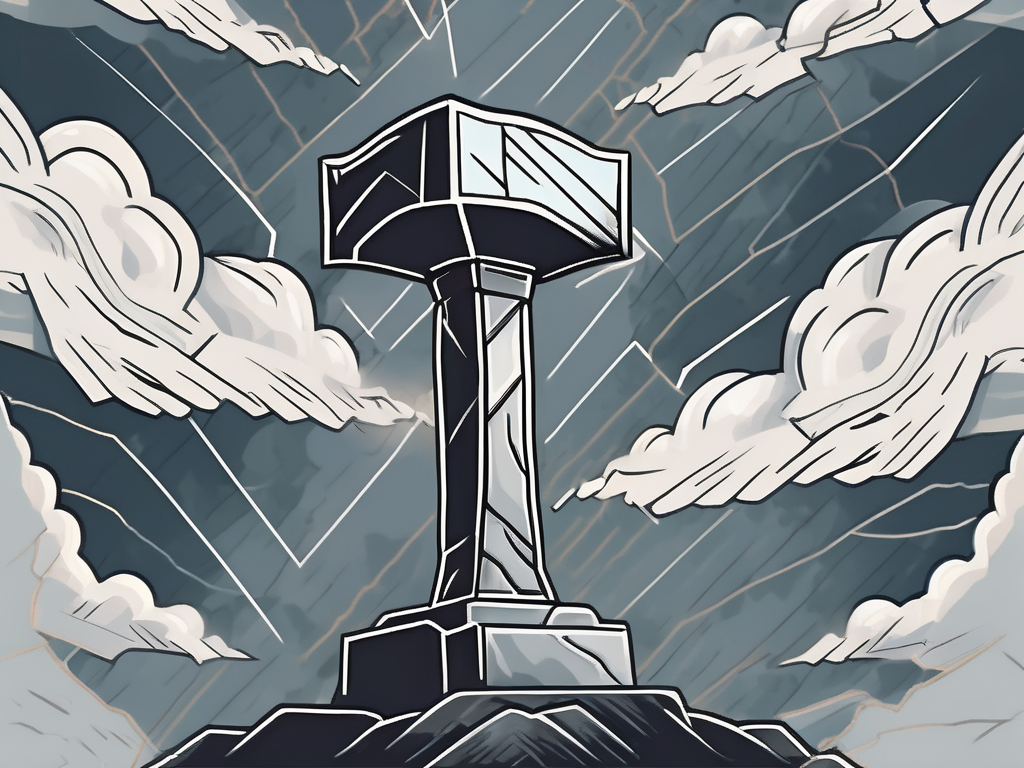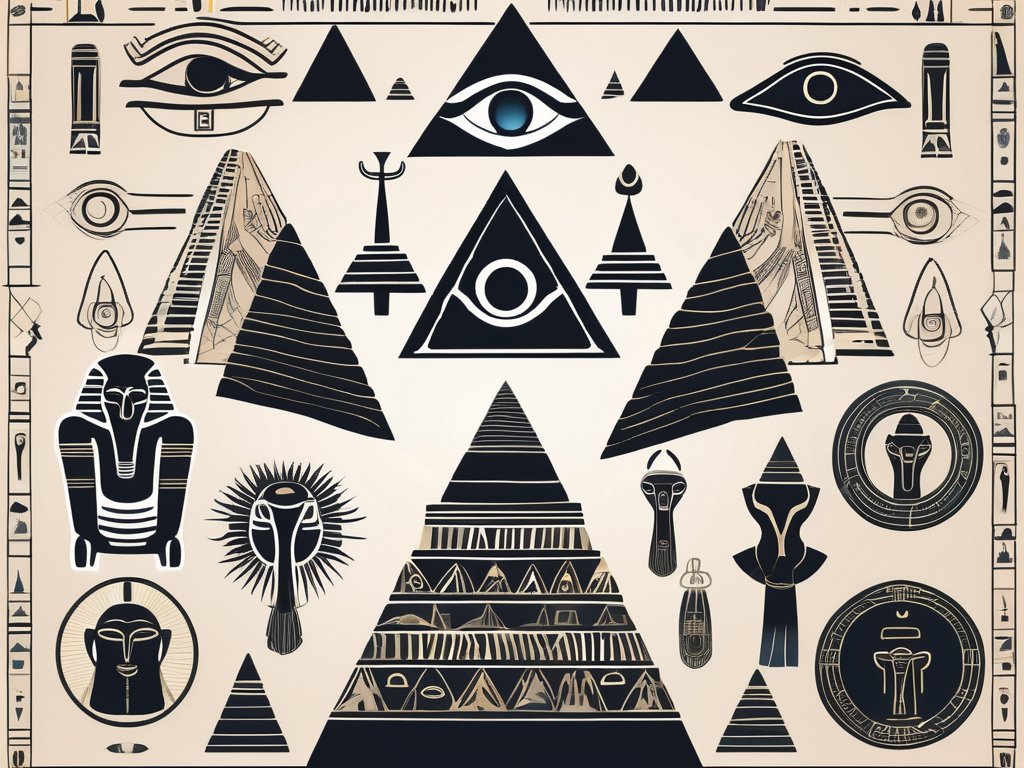Welcome to a journey through the ancient Egyptian mythological world as we delve into the fascinating deity known as Horus. This powerful god has captured the imaginations of people for centuries with his complex symbolism and intriguing stories. Join us as we uncover the secrets and uncover the mysteries surrounding this enigmatic figure.
Understanding the Role of Horus in Egyptian Mythology
When exploring Egyptian mythology, it is impossible to ignore the prominent role played by Horus. As one of the most important gods in the ancient pantheon, Horus held various roles and was associated with different aspects of life and the divine. Let’s take a closer look at the birth and early life of Horus:
The Birth and Early Life of Horus
Horus was believed to be the son of Osiris, the king of the gods, and Isis, the goddess of magic and wisdom. As the story goes, Horus was born shortly after his father Osiris was murdered by the jealous god, Set. Protected by his mother Isis, Horus grew up hidden in the marshes of the Nile delta.
Legend has it that Horus possessed unique qualities and strength from a young age. He was depicted as a falcon-headed man, symbolizing his connection to the sky and his ability to soar above mortal realms.
Throughout his childhood, Horus was carefully groomed and prepared to avenge his father’s death and assume the role of king of the gods.
Horus and His Relationship with Other Egyptian Gods
In Egyptian mythology, Horus’s conflicts and alliances with other gods played a significant role in shaping his character and role in society. One of the most famous tales involving Horus revolves around his ongoing battle with Set, his father’s murderer.
Set, depicted as a lion-headed deity, represented chaos and disorder. In contrast, Horus symbolized order and harmony. This prolonged struggle between the two gods symbolized the constant battle between good and evil in ancient Egyptian cosmology.
Another important relationship was Horus’ connection with the goddess Hathor, who acted as a protective and nurturing figure in his life. Together, they represented balance and fertility.
As Horus grew older, his reputation as a powerful and just god spread throughout Egypt. He was revered as a protector of the pharaohs, ensuring their success and guiding them in matters of leadership and governance. The people believed that Horus watched over them, keeping them safe from harm and guiding them towards prosperity.
One of the most fascinating aspects of Horus’ mythology is his association with the sun. Just as the sun rises and sets each day, Horus was seen as the divine embodiment of the sun’s journey across the sky. His falcon form represented the sun soaring through the heavens, bringing light and life to the world.
Furthermore, Horus was also closely associated with the concept of resurrection and the afterlife. Egyptians believed that Horus, as the son of Osiris, played a crucial role in the journey of the soul after death. He was seen as a guide and protector, ensuring that the deceased reached the realm of the gods and achieved eternal life.
Overall, Horus’ role in Egyptian mythology is multifaceted and complex. From his birth and early life to his relationships with other gods, Horus represents the eternal struggle between good and evil, order and chaos. His significance in Egyptian culture cannot be overstated, as he embodies the ideals and beliefs that shaped the ancient civilization.
The Symbolism of Horus in Ancient Egypt
Throughout ancient Egypt, Horus was associated with numerous symbols that held deep meaning and had significant cultural implications. One of the most recognizable symbols associated with Horus is the Eye of Horus:
The Eye of Horus, often depicted as a stylized eye, served as a powerful protective symbol in Egyptian culture. It represented healing, restoration, and the royal authority of the pharaoh. It was believed that by wearing a depiction of the Eye of Horus or having it present in their surroundings, individuals would be protected from harm and evil forces.
In addition to the Eye of Horus, there were other symbols that held great importance in relation to Horus. One such symbol was the falcon, which was closely associated with the god:
The falcon, with its keen eyesight and swift flight, was seen as a representation of Horus’s vigilance and power. It was believed that Horus, in his falcon form, could soar high above the land, surveying everything beneath him and ensuring the safety and prosperity of Egypt. The falcon’s wings, outstretched in flight, symbolized Horus’s ability to protect and guide the pharaoh and the people of Egypt.
Another symbol often associated with Horus was the ankh, an ancient Egyptian hieroglyphic symbol that represented life:
The ankh, resembling a cross with a loop at the top, was believed to hold the key to eternal life. It was often depicted in the hands of Horus, symbolizing his role as a bringer of life and resurrection. The ankh was a powerful symbol of divine protection and was frequently used in religious ceremonies and rituals to invoke Horus’s blessings.
The Eye of Horus: Meaning and Significance
The Eye of Horus, as mentioned earlier, held great meaning and significance in ancient Egypt. It was not only a symbol of protection but also represented the concept of divine vision and enlightenment. The eye, with its piercing gaze, was believed to see beyond the physical realm and into the realm of the gods.
Furthermore, the Eye of Horus was associated with the concept of balance and harmony. It was believed that Horus, as the god of the sky, brought order to the chaotic forces of the world. The Eye of Horus, with its watchful presence, ensured that the cosmic balance was maintained and that justice prevailed.
Besides the Eye of Horus, the god himself was seen as a symbol of kingship and power:
Horus as a Symbol of Kingship and Power
Horus was strongly associated with the pharaohs, who believed themselves to be the earthly embodiment of the god. As a symbol of kingship and power, Horus represented the divine right of the pharaoh to rule over Egypt. The pharaohs sought Horus’s guidance and protection throughout their reigns, often depicting themselves as Horus in their hieroglyphic inscriptions and artwork.
It was believed that the pharaoh, as the living Horus, possessed the same authority and wisdom as the god himself. The pharaoh’s rule was seen as a continuation of Horus’s divine mission to maintain order and protect the land of Egypt. The symbiotic relationship between Horus and the pharaohs reinforced the concept of divine kingship and solidified the pharaoh’s position as the ultimate ruler.
In conclusion, the symbolism of Horus in ancient Egypt was multi-faceted and deeply ingrained in the culture and beliefs of the people. From the protective Eye of Horus to the regal falcon and the life-giving ankh, each symbol represented different aspects of Horus’s power and influence. As a symbol of kingship and power, Horus embodied the divine authority of the pharaohs and played a vital role in maintaining the cosmic balance and order of the Egyptian civilization.
The Worship and Cult of Horus
The worship of Horus was a central part of ancient Egyptian religious practices. Temples and sacred sites dedicated to Horus were established throughout Egypt:
Temples and Sacred Sites Dedicated to Horus
One of the most renowned and significant temples dedicated to Horus was the Temple of Horus at Edfu. This beautifully-preserved temple stands as a testament to the grandeur of ancient Egyptian architecture and is still a popular tourist attraction today.
Additionally, festivals and rituals were held in honor of Horus:
Rituals and Festivals in Honor of Horus
One of the most important yearly festivals celebrated in honor of Horus was the “Horus Eye Festival.” During this event, worshippers would gather to pay homage to Horus and seek his blessings and protection.
The rituals and festivals dedicated to Horus were filled with music, dancing, and offerings. They served as a way for the community to come together and reinforce their connection to the divine realm.
The Legacy of Horus in Modern Culture
The influence of Horus extends far beyond ancient Egypt and continues to inspire artists, writers, and filmmakers to this day:
Horus in Literature and Film
From ancient texts to modern novels, Horus has been a recurring character in various forms of literature. His epic battles with Set and his connection to kingship continue to captivate readers worldwide.
In the world of cinema, Horus has been brought to life through stunning visual effects and gripping storytelling. Films such as “Stargate” have introduced a wider audience to the ancient deity, reigniting interest in Egyptian mythology and its captivating tales.
The Influence of Horus on Contemporary Art and Design
Horus’s striking appearance and powerful symbolism have made him a popular subject for contemporary artists and designers. His iconic depiction as a falcon-headed man continues to inspire stunning artwork and designs that pay homage to Egypt’s rich cultural heritage.
In conclusion, the mysteries and symbolism surrounding Horus, the Egyptian god, have fascinated humanity for centuries. From his role in Egyptian mythology to his enduring presence in modern culture, Horus remains an enigmatic and influential figure. By exploring his stories and symbols, we gain a deeper understanding of ancient Egypt’s beliefs and values.
So, join us as we continue to unravel the secrets of Horus and embark on a journey into the divine realm of ancient Egypt.












